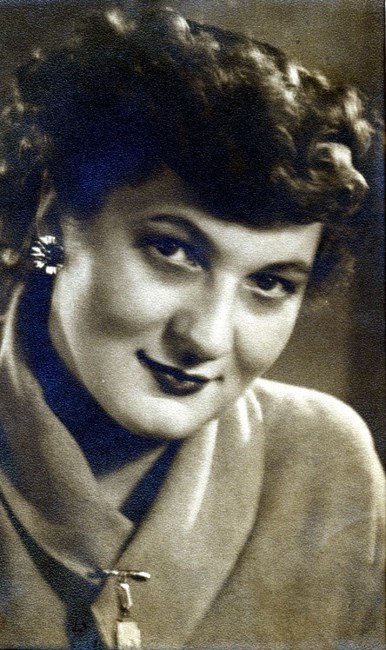
OBITUARY
Charlotte Marburg
November 20, 1919 – March 10, 2014

She was born into a working class, social democratic family who were opposed to the Nazi Fascism movements. Her brother and she successfully resisted membership in the Nazi Youth Organizations. Charlotte graduated both high school and secretarial school and therefore managed to avoid work in the Nazi war machines. Instead Charlotte was able to use her skills working in a health clinic as a Medical Assistant.
During these difficult times, Charlotte lost her father, who had epilepsy as a result of a childhood injury, and was later euthanized by the Nazi party. She also lost her brother, killed during combat in the Soviet Union. On more than one occasion during these years, Charlotte lost her home because of Allied Air Force strikes destroying their home. At the time that WWII ended with occupation by Tartar Soviet Union troops, Charlotte’s world was tarnished by random killings, rapes and plundering in the city.
At one critical point in Charlotte’s life she made the decision to align with two Latvian women, one of whom had a three month old baby boy; and they headed west, without even so much as a compass, toward the Allied lines. She was homeless, sleeping in barns, stealing food to eat and bathing in the cold rivers. During this time, Charlotte found food and shelter in the American Occupation Zone. Finally, after eight long weeks, Charlotte, the two women and the baby boy found safety in a village near Rosenheim in Bavaria. They had all survived.
Through a connection with the Indigenous Employment Manager at the Post Exchange in Munich, Germany, Charlotte was able to find work that included her noon-day meal. In September 1947, Charlotte sold her candy ration to a customer, Kurt S. Marburg, who was Director of Indigenous Personnel. A close relationship evolved, cultimating with Charlotte obtaining a legal quota immigration to the United States. After entering the United States, Charlotte held employment as a nanny, dental assistant and finally a statistician.
After a time, Kurt proposed marriage to Charlotte, and she accepted. After the engagement, as preparation for their marriage, in January 1953, Charlotte entered into a conversion program to Judaism. She read, studied and learned the required rituals, readings and traditions of the Jewish religion and after a Board of Rabbis converted her to a Jew by Choice by Shavuot in 1953; Charlotte was given her Hebrew name of Ruth Bat (daughter of) Abraham. Ultimately, on May 31, 1953, Charlotte and Kurt were married in a Conservative Jewish tradition. This marriage was made in Heaven. It lasted over 60 years.
In 1985 Charlotte and Kurt moved to Bradenton, Florida were they made their home and made some dear friends. As Charlotte entered her later years she had to face yet another obstacle. She had to have an operation on her spine which was deemed unsuccessful and resulted in her being handicapped with severe back pain and discomfort. This stole Charlotte’s chance of leading a comfortable, enjoyable and relaxing retirement. But typical of Charlotte, who had overcome so much more than most people, she never lost her determination and hope for a healthy, painless life.
As described by Kurt, the one thing that he loved most about Charlotte was her tenacity to see a problem and quickly make a plan of action and execute it. She was a true leader and that was one of the traits that she had that drew him to her. He said, “I must have needed that”.
Charlotte lost her battle and passed peacefully in her sleep at Doctor’s Hospital in Sarasota, Florida on March 10, 2014.
Blessed be her memory.
Arrangements under the direction of Manasota Memorial Park and Funeral Home, Bradenton, FL.
Show your support
Add a Memory
Share Obituary
Get Reminders
Services
SHARE OBITUARYSHARE
- GET REMINDERS
v.1.18.0